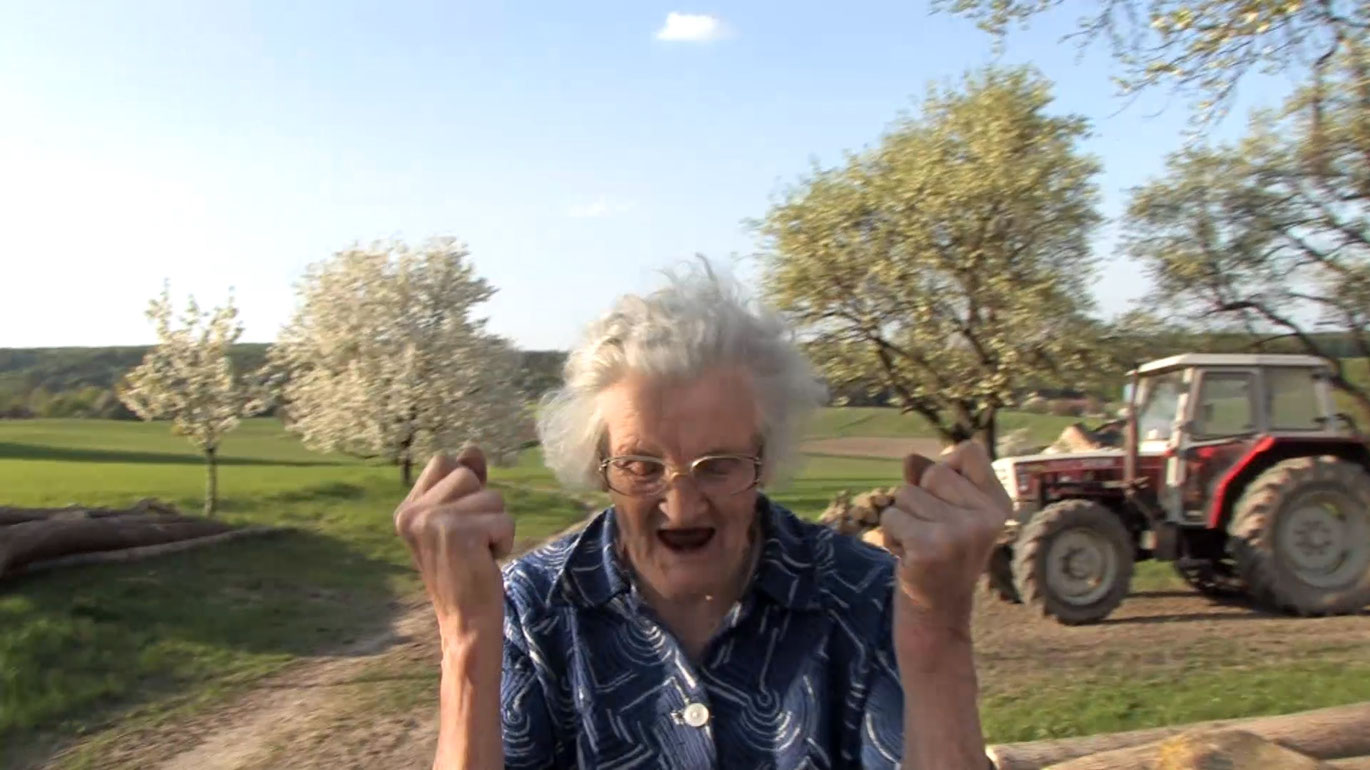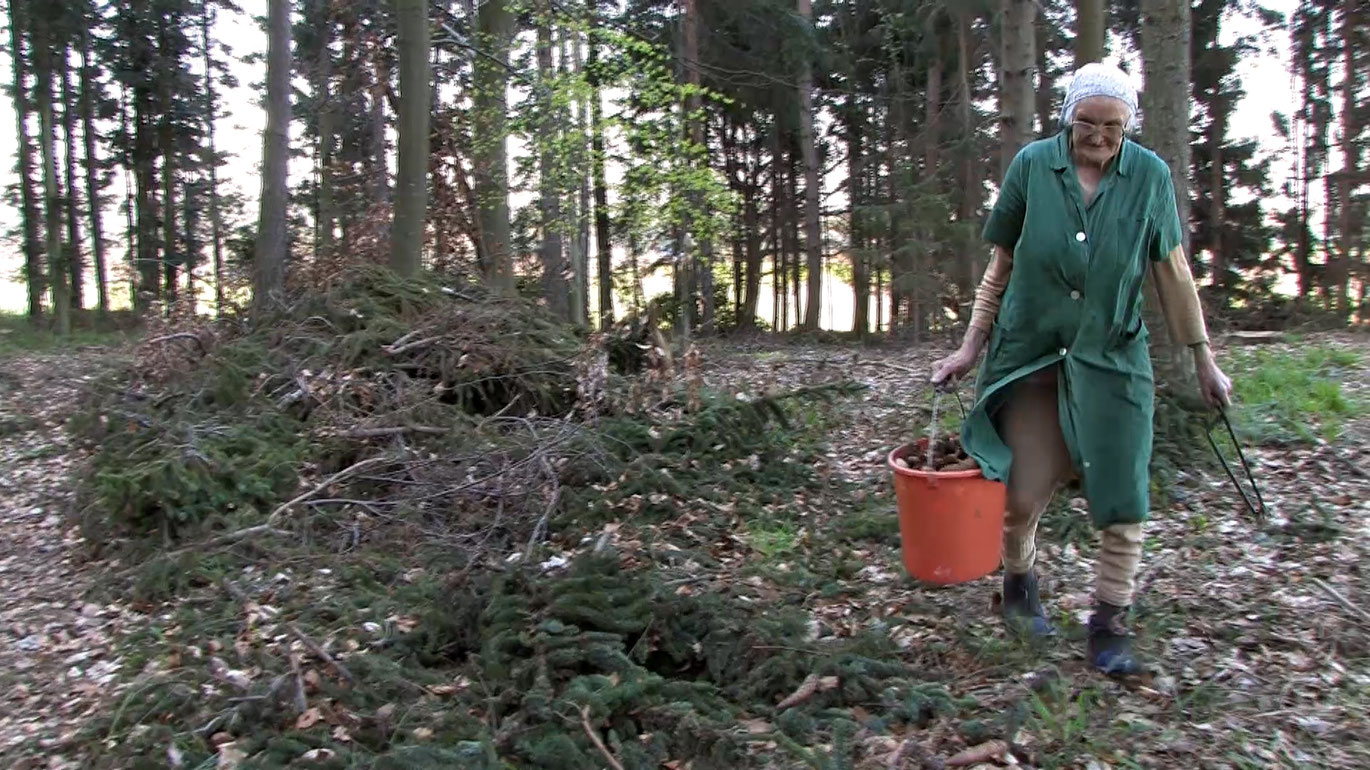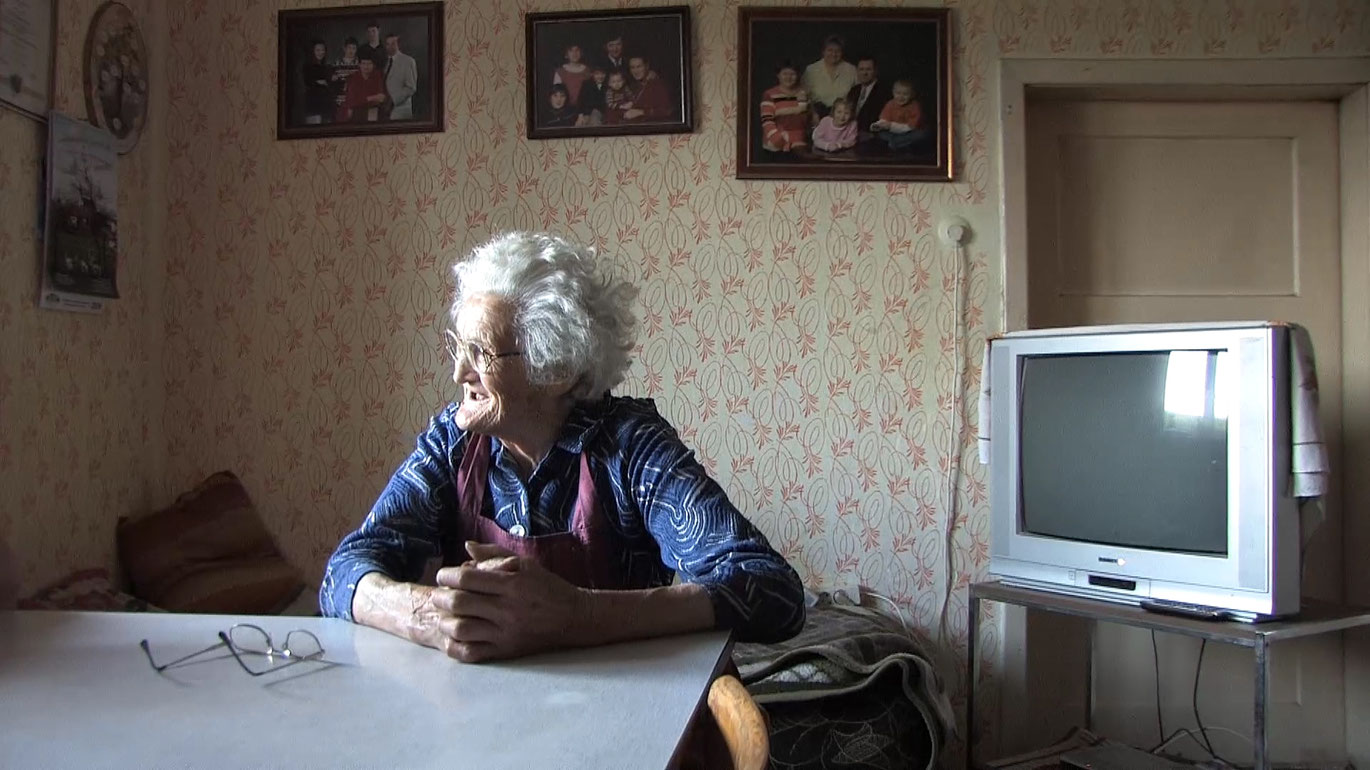Hilda
The first image captures Hilda´s legs and hands. She is bent down cutting grass. This activity is heard before the picture fades in. We are seeing a woman who, despite age and fragility, is in a constant state of motion and work. She does not shy from any effort. And she laughs. Her philosophy: He who rests, rusts. If you rest your hands in your lap, your brain comes to a standstill. I’´m free as a bird. She hails a passing tractor to hitch a ride, taking a seat on the back. She dexterously clamps her walking stick and secures her position, waving to us as she is driven off.
This scene constitutes an almost iconic image, essentially emphasizing preceding statements: Hilda Lackner´s freedom is multi-layered. She is free of conventions; free of social and material obligations; and as a woman she is also free since her husband passed away 14 years ago. She lives a simple life because she possesses only what she really needs. She cultivates her own tomatoes and salad. She lovingly raises an entire stall of hares. She gathers pinecones to strain out seeds and plant new trees: This is her hobby, she says.
From the very beginning, Karen Berghammer´s voice-over is spoken in the past tense, a fact one almost overhears: "Hilda Lackner was my neighbor. We got to know each other better when she started taking care of our hare." We then see a long shot of the farmyard, followed by the landscape at different times of the year, and how winter approaches. Hilda´s agility wanes, now it is the camera that embarks on travels. Once again the cherry trees blossom, goldenrod and chamomile are in bloom. Hilda does not tire of telling stories and explaining things. The film celebrates Hilda in her straightforward openness, as a woman who did what needed to be done. (Sylvia Szely)
Translation: Eve Heller
Hilda
2017
Austria
49 min



